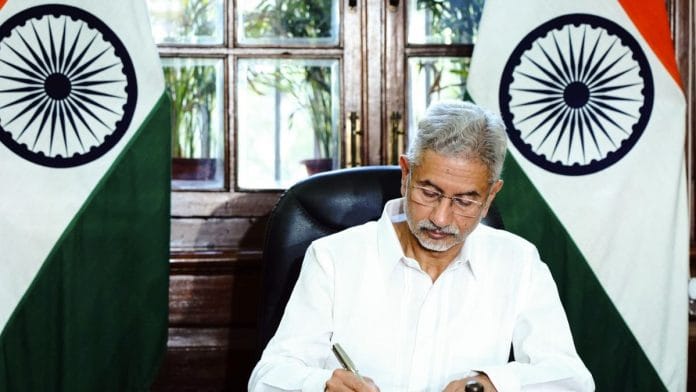New Delhi: On 23 June, 2024, which marks the 39th anniversary of the bombing of Air India Flight 182, External Affairs Minister S. Jaishankar said “terrorism should never be tolerated”, in the same week the Canadian Parliament paid homage to Sikh separatist leader Hardeep Singh Nijjar.
“Today marks the 39th anniversary of one of the worst acts of terrorism in history. Pay my homage to the memory of the 329 victims of AI 182 ‘Kanishka’ who were killed this day in 1985. My thoughts are with their families. The anniversary is a reminder why terrorism should never be tolerated,” said Jaishankar in a post on X.
A bomb exploded on Air India Flight 182 on 23 June 1985, killing all 329 members on board. It was considered the worst act of aviation terrorism in the world until the 9/11 attacks on the Twin Towers of the World Trade Center in the US, which took place on 11 September, 2001. The flight departed from Montréal and was en route to Mumbai via London and New Delhi, when the bomb exploded off the Irish coast.
In a separate statement on 21 June, the Royal Canadian Mounted Police (RCMP) said that investigations into the bombing of the plane are still “active and ongoing”.
“The Air India investigation is the longest and certainly one of the most complex domestic terrorism investigations that the RCMP has undertaken in our history. Our investigative efforts remain active and ongoing,” said Dave Teboul, Assistant Commissioner and Pacific Region Commander, RCMP.
The investigations by the RCMP over 39 years has led to only one conviction, which is that of Inderjit Singh Reyat. He was convicted on charges of manslaughter for constructing the bomb. Almost all of the other accused, including Ripudaman Singh Malik and Ajaib Singh Bagri, were cleared of all charges. The trial cost nearly $130 million, and is the longest and most expensive in the history of Canada.
Indian govt accuses Canada of sheltering terrorists
Jaishankar’s warning that terrorism will not be tolerated comes as the Indian government continues to point out that Ottawa has been giving asylum to those advocating for violence and extremist acts.
On 18 June, 2024, the Canadian Parliament observed a moment of silence for Nijjar, a year after he was killed outside a gurdwara in Surrey, British Columbia. Nijjar called for taking up arms against India during a sermon at the Guru Nanak Sikh Gurdwara, an investigation by the Canadian newspaper The Globe and Mail revealed.
India designated him a terrorist in 2020. Born in Punjab, Nijjar left for Canada in 1997 and remained there till his death in 2023. At his gurdwara, a portrait of Talwinder Singh Parmar, the founder and leader of the terrorist organisation Babbar Khalsa International (BKI), and one of the main leaders behind the bombing of Air India Flight 182, hangs in the dining hall, according to The Globe and Mail.
Four Indians have been arrested and charged by the Canadian police for the killing of Nijjar.
However, in September 2023, the Canadian government said it had come across credible allegations that agents of the Indian government were linked to the killing of Nijjar. This charge set off a diplomatic firestorm, as a result of which ties between New Delhi and Ottawa reached historic lows.
At that time, New Delhi denied the allegations and called them “absurd and motivated.” Since then, Ottawa has withdrawn 41 diplomats from India.
Earlier this month, Indian High Commissioner to Canada Sanjay Kumar Verma told ThePrint that no specific or relevant information has been shared by Canada on its allegations of an Indian government link behind the killing of Nijjar.
(Edited by Radifah Kabir)
Also read: India reacts to Canada honouring Nijjar — ‘we oppose political space to extremism & violence’






